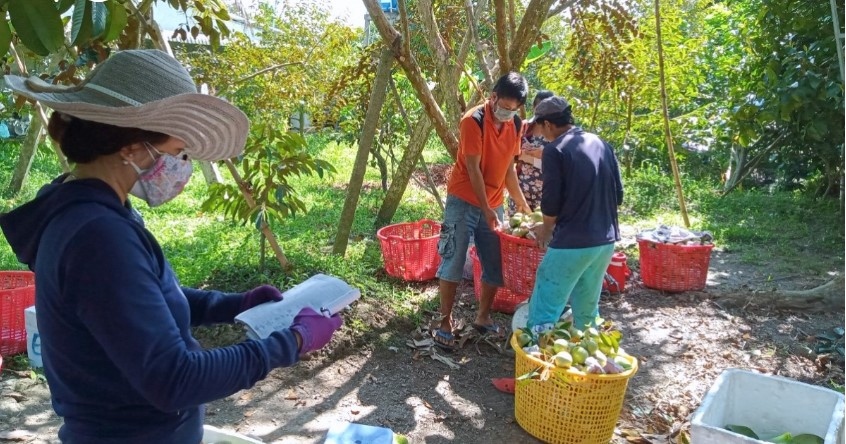Mekong Delta region contributes roughly 31% to agricultural sector’s GDP
VOV.VN - Statistics from the Ministry of Industry and Trade show that the Mekong Delta region is contributing about 31% to GDP of the entire agricultural sector, with roughly 50% of rice output, 95% of rice exports, 65% of aquaculture and exploitation output, 60% of fish exports and approximately 70% of all type of fruits.

The Mekong Delta region possesses export items worth over US$1 billion such as rice, seafood, and fruit.
Despite its strengths, the region's economy is considered to have not developed on a par with its potential when facing numerous challenges such as climate change, water resource depletion, and saltwater intrusion.
Therefore, it is very necessary to properly assess potential and challenges and devise appropriate development solutions to contribute to the goal of developing the Mekong Delt into a region with a fairly developed level compared to the whole country.
It is estimated that this year the total rice export volume of the country will remain above 8 million tons, of which the Mekong Delta alone will contribute about 7.6 million tons.
Emphasizing brand building, deep participation in the distribution network and global value chain, and developing export markets for the Mekong Delta's key products, Tran Quoc Toan, deputy head of the Import-Export Department under the Ministry of Industry and Trade, said that the region's exports are still primarily based on prices without investment in value enhancement. Some products have been invested in deep processing but have not yet met the EU market's standards.
In addition, businesses' investment in brand building and agricultural logistics infrastructure have not received due attention, which has also affected the promotion of the region's strengths.
According to Toan, in the coming time, the Mekong Delta region will continue to have ample room for development in rice, fruit and vegetables, and seafood if the region pay attention to investing in infrastructure, applying science and technology in production and processing to have high-quality products, and meet requirements of export markets.
The Ministry of Industry and Trade stressed that in order for the Mekong Delta region to develop in alignment with its full potential, one of the important solutions is to promote regional connectivity in trade promotion and imports and exports in order to optimize resources of localities in the region to serve sustainable development.


